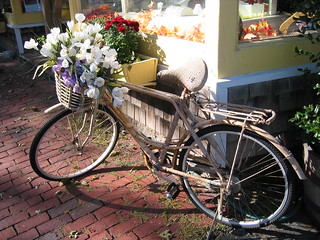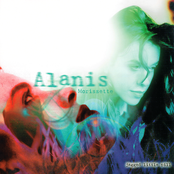Drinking straws and social capitalism
While reading Matthew Davidson’s blog, I came across this interview with Benjamin Barber on the Bill Moyer program on PBS. He says that American capitalism “… is no longer manufacturing goods to meet real needs and human wants.
Capitalism is manufacturing needs to sell us all the goods it needs to produce, in order to stay in business.”
As someone who has lived in another country and seen America from afar, I definitely get the sense that we as Americans identify first and foremost as consumers, and secondly as citizens. It is a mandate from mass media to consume, consume and consume. You can never have enough stuff. Shop until you drop. The boys with the most toys wins. We are not told to vote, we are told to shop, and Barber argues that we are being treated as infants.
What do we do with all this stuff that we buy? Well, most of it gets used for a short period of time, until the next great thing comes along, and then we dump the “old” (but still perfectly capable) thing for the new model. Annie Leonard tells us in the Story of Stuff, what happens to all this trash, and where it really ends up.
Moyer argues that capitalism is good because it gives us consumers lots of choices. Barbers excellent example is that when you fly to L.A., you have hundreds of cars that you can choose from to rent, but then you sit for five hours in traffic on the highway, because the one choice you don’t have is to take reliable, cheap, efficient public transportation. That is a social choice he says, which I would argue does not usually come into play when privatization is heralded as the answer to all of our problems.
I observed this when I was living in Denmark, a country which has public healthcare and education. When you go to the doctor’s office, you don’t have to show an insurance card or credit card. You just show them your national ID card, and everything is covered. As a resident of Denmark, you have a right to free healthcare. Of course, it’s not free because you pay for it through your taxes, but it’s available to everyone, no matter if you are unemployed or how much money you make. The Danes as a society decided that they valued healthcare and education, and were willing to pay for it through their taxes to ensure that everyone has access to them.
Now what is happening as a result of reign of the conservative political party in Denmark, is a trend towards adopting the U.S. model of privitization. Many private hospitals are opening up in Denmark, and the best doctors are going to work at those hospitals because they can get paid more. This of course results in a decline of good public healthcare. Some might say that privatization is good for society because it brings more choices, but as Barber says, what are those choices and for things that all citizens need, are those choices equally available to all citizens?
Americans have decided that we would rather pay less in taxes and instead pay for healthcare through our employers or out-of-pocket, which of course means that 54.5 million Americans don’t have health insurance because they are unemployed or can’t afford it. Sure, we might have more choices when it comes to which doctor/hospital we can go to, but that doesn’t make much difference if it’s so cost prohibitive to visit a doctor that we just don’t bother to go at all.
According to the Institute of Medicine, “lack of health insurance causes roughly 18,000 unnecessary deaths every year in the United States. Although America leads the world in spending on health care, it is the only wealthy, industrialized nation that does not ensure that all citizens have coverage.” Insuring America’s Health: Principles and Recommendations, Institute of Medicine, January 2004.

The problem that LifeStraw is solving is getting clean water to people in developing countries. And Barber points out that Lifestream is a very profitable company. They have produced a product which solves a real problem, and it’s saving lives.
Companies in Denmark are making a profit by creating tools to save lives, while American health insurance companies are making huge profits by destroying lives. What does this say about our American society?
I strongly recommend watching part 1 and part 2 of the interview with Benjamin Barber.


 RSS - Posts
RSS - Posts

























Recent Comments